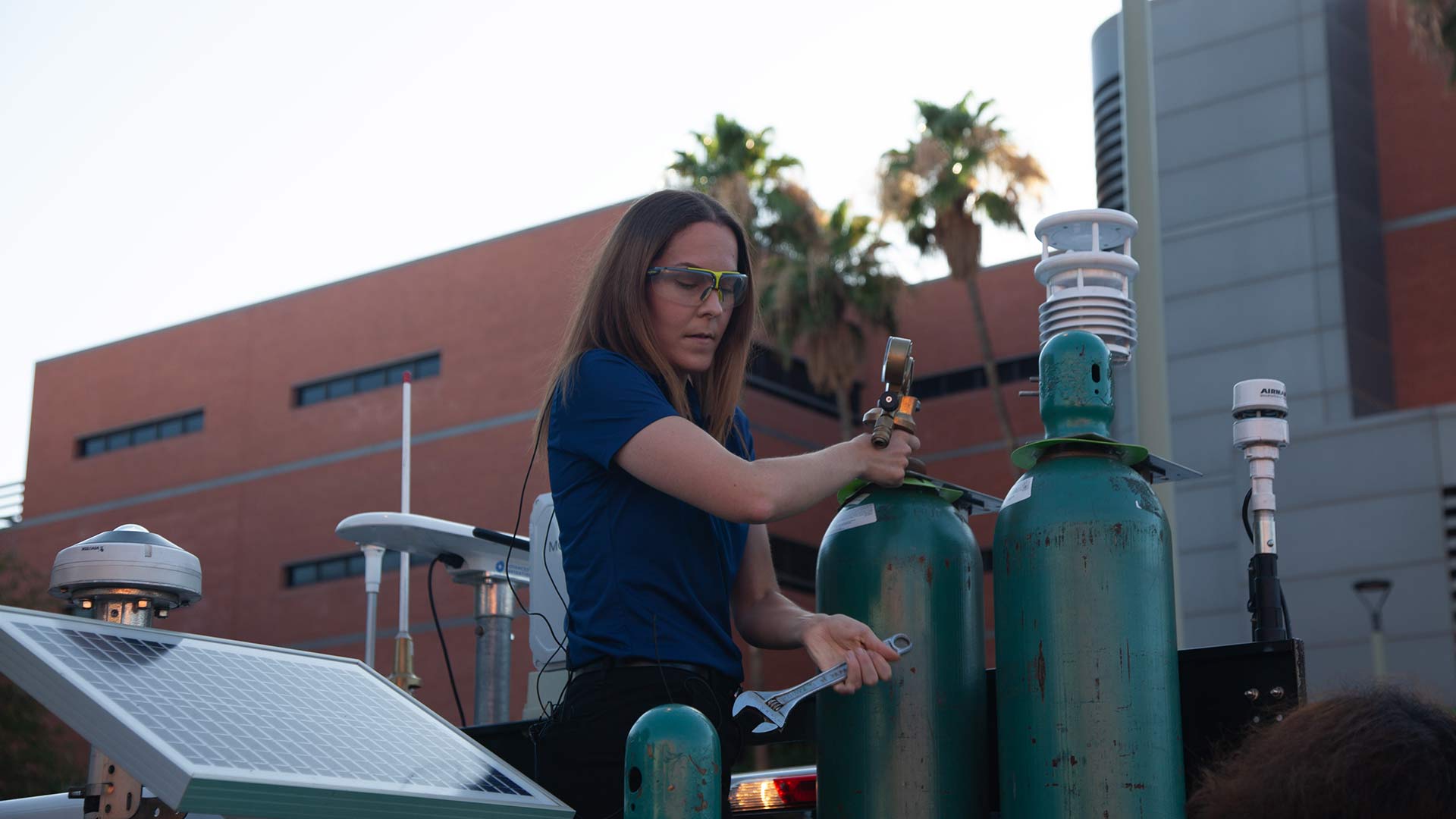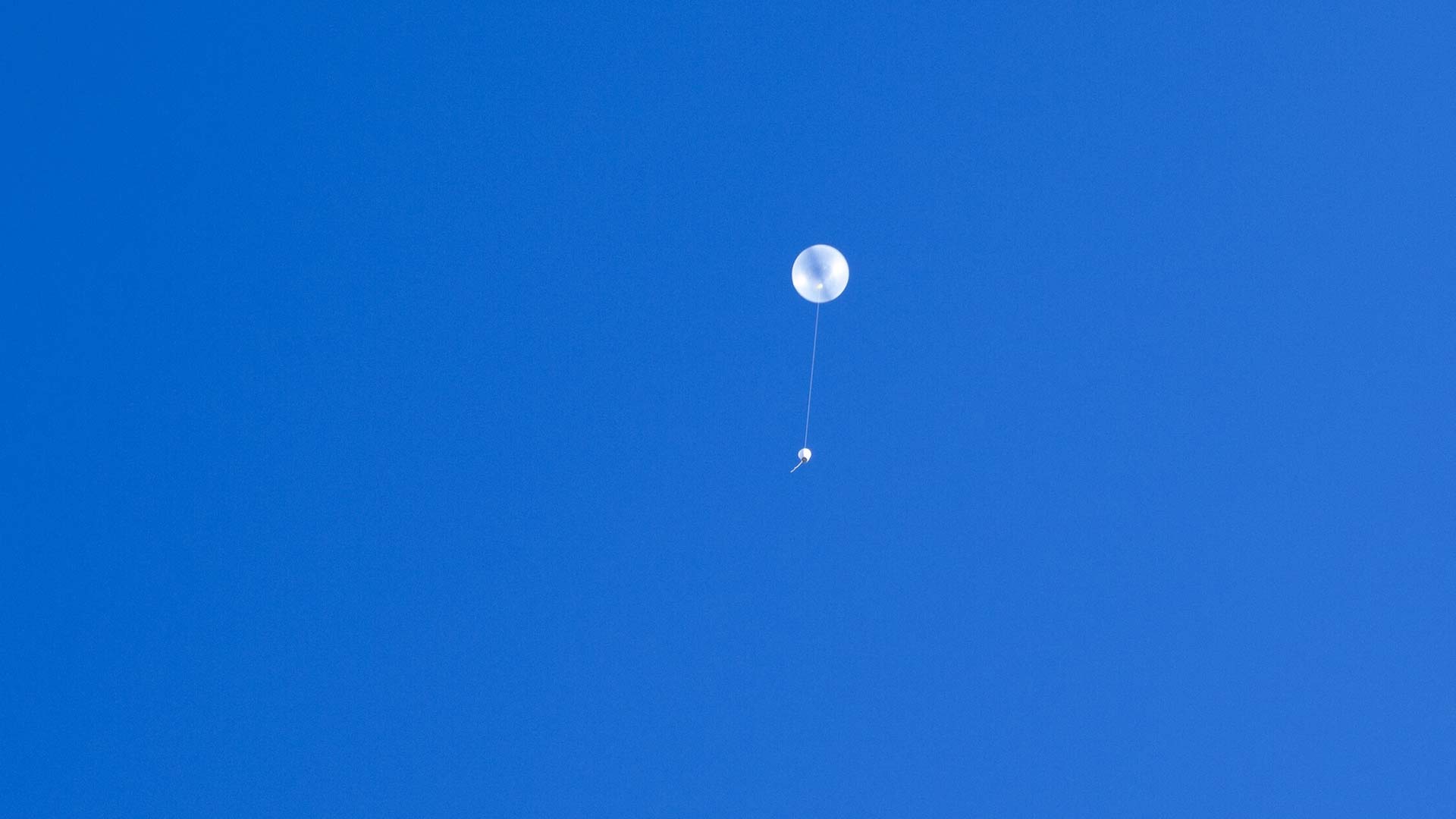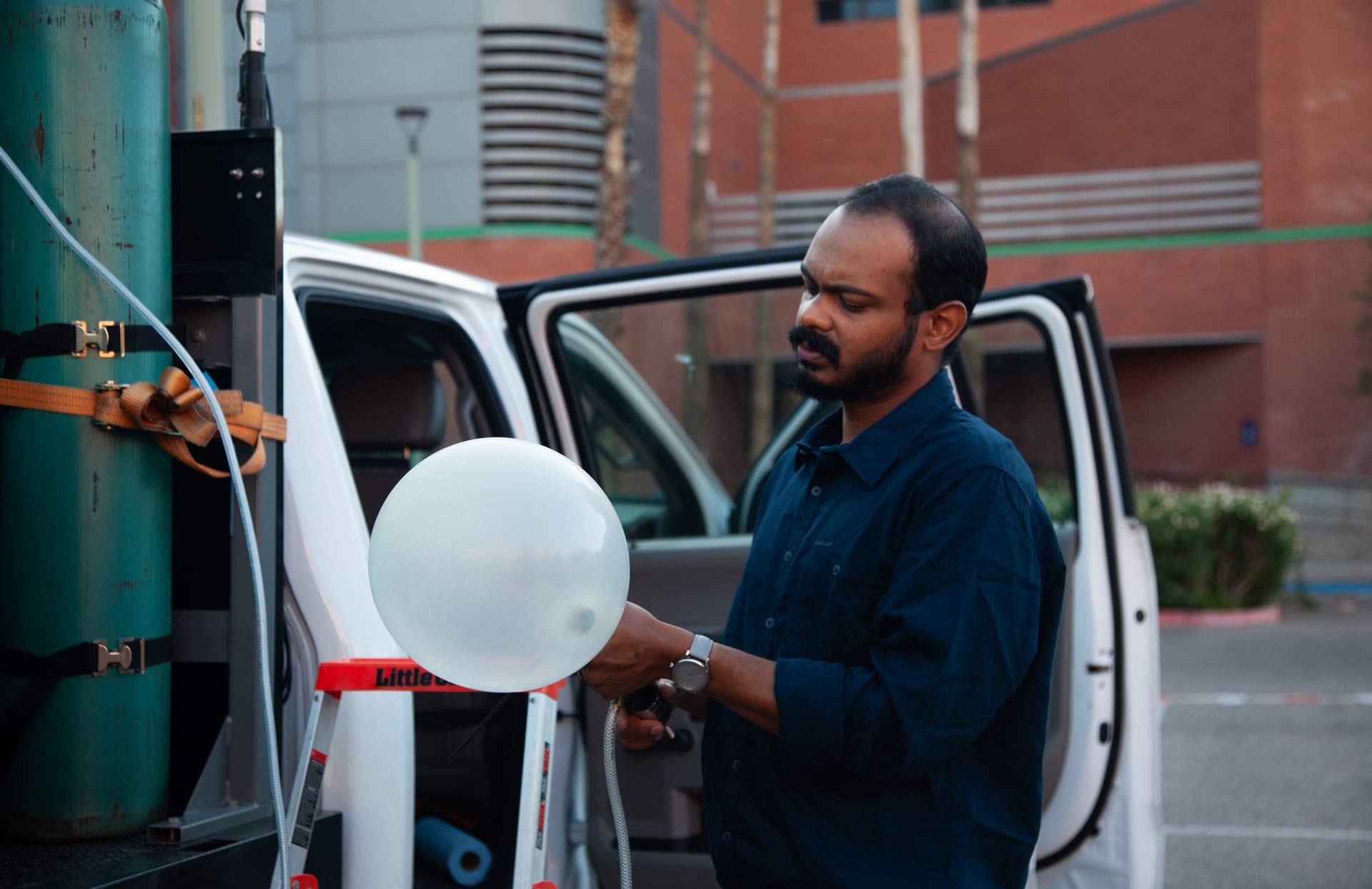 Katia Lamer, director for the Center for Multiscale Applied Sensing at the Brookhaven National Laboratory who leads the team that drives the mobile weather trucks on Tuesday, July 2, at the University of Arizona in Tucson, Ariz. Lamer says the lack of climate data can make it difficult to quantify inequities in regional heat and air quality.
Katia Lamer, director for the Center for Multiscale Applied Sensing at the Brookhaven National Laboratory who leads the team that drives the mobile weather trucks on Tuesday, July 2, at the University of Arizona in Tucson, Ariz. Lamer says the lack of climate data can make it difficult to quantify inequities in regional heat and air quality.
Weather scientists tracking national climate data stopped at the University of Arizona (UA) today to launch weather balloons, aiding extreme heat research in the Southwest.
The researchers are working with Arizona’s three public universities through a federally-sponsored partnership with the Department of Energy’s (DOE) Brookhaven National Laboratory and Southwest Urban Corridor Integrated Field Lab (SW-IFL) to collect regional climate data and develop solutions for extreme heat.
Ladd Keith, associate professor in the College of Architecture, Planning and Landscape Architecture (CAPLA) and co-principal investigator for the (SW-IFL) stated the goal is to improve an overall understanding of climate change.
“They’re going around the Arizona urban corridor collecting really important neighborhood level-data to help us improve our understanding of urban heat and air quality issues,” Keith said.
The researchers are traveling with two-of-a-kind weather-chasing trucks to collect data on temperature, humidity, air quality and weather events.
 VIEW LARGER A weather balloon floating up into the atmosphere above the University of Arizona on Tuesday, July 2, in Tucson, Ariz. The weather-reading instrument was released by researchers from the Brookhaven National Laboratory to analyze atmospheric data in the Tucson area.
VIEW LARGER A weather balloon floating up into the atmosphere above the University of Arizona on Tuesday, July 2, in Tucson, Ariz. The weather-reading instrument was released by researchers from the Brookhaven National Laboratory to analyze atmospheric data in the Tucson area. Edwin Davis, post-doctoral researcher at the Brookhaven lab, helps operate the mobile observatories and launch weather-tracing instruments that monitor atmospheric data.
For the past few weeks, Davis and his team have been working in the field, to track cooling effects throughout Phoenix and Tucson.
“We have to provide information to the policy makers or we have to put forward a result that if you are planning to make these kind of green spaces or painting the surface with the white coating, you can reduce the temperature by this much so that quantitative information we have to provide to reduce the heating effect due to the urbanization,” Davis said.
 VIEW LARGER Edwin Davis, a post-doctoral climate researcher for the Brookhaven National Laboratory at the University of Arizona, Tuesday, July 2, in Tucson, Ariz. Davis, holds a weather balloon as it fills up with helium from the weather-tracing truck.
VIEW LARGER Edwin Davis, a post-doctoral climate researcher for the Brookhaven National Laboratory at the University of Arizona, Tuesday, July 2, in Tucson, Ariz. Davis, holds a weather balloon as it fills up with helium from the weather-tracing truck. Keith noted that the data being collected is not easily accessible, however the trucks are gathering localized information to better a general understanding of the environmental challenges faced by specific communities such as lower-income areas that are disproportionately affected by urban heat.
“We’ll be doing this project for another three years and we’ll look at changes over time with some of these investments,” Keith said.
Heidi Brown, a professor in the Mel and Enid Zuckerman College of Public Health added that the collected data can inform public health experts on the health implications of climate change.
“Public health is complicated, climate is complicated, and I think there’s some where we see sort of general trends and actually being able to tease out what those are,” Brown said.
The SW-IFL project began in 2022, after the DOE awarded $25 million for five years of research to better understand the stress of extreme heat, atmospheric pollutants and limited water supply in vulnerable communities across Arizona.

By submitting your comments, you hereby give AZPM the right to post your comments and potentially use them in any other form of media operated by this institution.